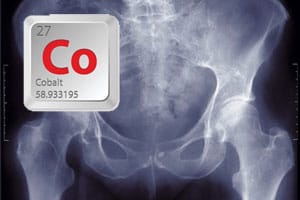
A Denver woman, allergic to a component in one of her hip implants had to undergo revision surgery to remove and replace the medical device. The 50-year-old woman told ABC News that said she suffered from pain and itching throughout her body, but had no idea it was her hip implant that was causing the […]
 A Denver woman, allergic to a component in one of her hip implants had to undergo revision surgery to remove and replace the medical device.
A Denver woman, allergic to a component in one of her hip implants had to undergo revision surgery to remove and replace the medical device.
The 50-year-old woman told ABC News that said she suffered from pain and itching throughout her body, but had no idea it was her hip implant that was causing the reactions that also included migraine headaches.
Two years into the symptoms, her right hip lit up on a PET scan she underwent for an unrelated issue. The hip involved was implanted in 2008 and constructed with metal, according to ABC News. “My entire body itched,” she told ABCNews.com. “A regular allergist did some testing that didn’t show anything. Not one person along the way said, ‘I wonder if you’re allergic to your hip.’”
She followed up with an allergist who administered skin patch tests that looked for an immune system response to the metals and other materials used in the artificial hip, ABC News explained. The tests revealed a cobalt allergy, which only affected one of the hip implant devices. The device was removed and replaced with a ceramic hip.
She learned that cobalt hip became defective about two years after she was implanted with the device. Specifically, normal wear and tear, such as what is seen during walking, released cobalt shavings into her bloodstream, causing her allergic reactions, ABC News explained. “There’s nothing worse than wanting to just crawl out of your skin because the itching is so bad,” she said.
Patients experiencing allergies with their artificial joint device may experience itching, burning, swelling, and warmth at the joint site, according to the ABC News report.
Metal-on-metal hip implants have raised safety concerns due to reports suggesting that such devices have a tendency to fail early in the post-operative period. In light of these reports, the U.S. Food & Drug Administration (FDA) has sought to propose stricter guidelines for approving all-metal hip implants that would require device makers to show that their implants are safe and effective before selling them. From a legal standpoint, these changes are a big step toward attempting to hold manufacturers responsible for dangers associated with their products.
The FDA also issued new guidelines to patients implanted with the ASR and other all-metal hip replacements advising, among other things, that doctors conduct physical examinations, diagnostic imaging, and metal ion testing, as needed.
We’ve repeatedly written that research has linked metal-on-metal hip implant devices, such as the DePuy ASR, to a number of adverse events such as tissue necrosis, pain at the implant site that sometimes spreads to the groin and back, inflammation, swelling, metal poisoning, high failure rates, osteolysis (bone loss), and fluid collection/solid masses around the hip joint. The issue appears to be with the metal used in the construction of the implants, which was touted to last for at least two decades. More and more, reports and research indicate that some patients have required painful revision surgeries just two or three years after original implantation.


